A Fuzzy Journey II – 矇眬之旅
(continues from “A Fuzzy Journey”, talk given on January 10)
PART TREE
We have explored together these “exquisite corps” in form of questions (and you should feel free to contribute to answering them in your terms). I have put them in the context of the difference between sub-cultures, let’s see the time in my life when it all happened for me: the transition from from a space-time-resources bound discourse (in he industrial age of the late XX century) and the Digitally Networked one we have dived in, head on as billions of individuals jump on the net in the XXIst.
Nomadism
- [ (noh-mad-iz-uhm) ] A way of life in which a community has no permanent settlement but moves from place to place, usually seasonally and within a defined territory.
- Nomads move in tribes and tribes have only few laws and strong bonds of kinship
- IRC ethics of the hackers groups: all op
- root/root or luther/luther access on our unix systems
- best literary descriptions of nomadic hacker cultures I remember are in Bruce Sterling, both in Islands in the net (1988) and in Chaos USA (don’t remember the English title)
- Nomads has no liking/understanding for geographical political borders, that they pass freely.
- Nomads have attention to different elements of the landscape that, once recognized, allow or deny (free) passage. To decide their way they onboard onto a different geography. Is a socio-physical reality, made of uncharted roads, small knowledge that brings you (illegally or para-legally) on the other side of a border, ways to make phone calls for free, using the “bugs” of the system (prank) and such. The nomad can be seen as an empowered the member of a subculture.
- What is a border in a network? A password you don’t know?
- Privilege escalation? Social Engineering? Espionage?
- We learn from permaculture design (and biology) that borders between different zones are the places were interesting things happen and there is more variety. Apply permaculture ideas to social observation and move your point of observation.
- How to understand a zone through all its flows? The Situation is the key concept.
- The concept of attractor, moreover the “strange attractor” is seeded in my practice by Scientific American articles about chaos (they date to 1985/1986). I could never go on without it.
- Temporary , reconfigurable spaces
- TAZ the temporary autonomous zone (from Fiume to the Burning Man as Hakim Bey teaches)
- RAVE culture (end of 1980es)
- The parade (Love PArade 1989)
- The way to power through identification (how to translate adolescence in 6 words)
- To develop the necessary attention to the landscape; active techniques of gathering knowledge is key.
- some powerful techniques of observation are irrational: the psychonaut (Castaneda, Hesse, Comics)
- some comes from performance art (Artaud)
- some powerful techniques of power are algorithmic (Bourroghs, Anton L. Wilson, Brian Eno)
- there is a lot of hidden knowledge underground. From tricks to long distance call for free to codes and hacks.
- Knowledge gives power for active and direct action that is declined with force by avant-guarde art movements and revolutionary conspiracies.
- Fight Club (film 1999), Mishima (1970), the futurists (1909), all avantguard movement (20es, ’30, ’60es)
- Force is not violence, actually resistance is more successful if non violent
- direct action in Paulo Freire vision: decolonize your strength staying clear from oppression cycles
- there is a “limen”, a border or twilight zone, that is accessible in various ways, that has pointers to hidden keys of power. Is behind a little barrier that can be overthrown or dissolved. It can be a social barrier (law, habits, organized crime) or a technological one (system protection, lock, security procedure)
- breaking symmetry you can find ways to overcome any complex system defense in the real world. This means the hacker is a devotee of elegant solutions before a solver of problems. They might invent a whole problem just to push through their elegant idea as a “solution” to it.
- The Net can be an ocean to navigate (pirate utopias, Hakim Bey) as well as the way (Kerouak, Jarmush, Ghost Dog). Street wisdom is the gift of rough times on the fronteer (Jim Jarmush, Dead Man, 1995) and can be declined in any language (DevOps included).
- Access to a peculiar state of conscience via this esoteric knowledge or drugs or body practices (tantra, yoga, sex, ayuaska) might give you a special social status, made of special abilities (usable in this liminality) were you are both powerfull and invisible. It might as well not give you these abilities.
- The rise of the Techno Shamans (end of 1990es and all the 2010’s)
- the attempt to normalize (the hackers in Hollywood movies and Netflix series with few exceptions)
- Those that have access to these keys of power (splinters of the matrix itself) becomes powerful elements of a subculture, often secretive, of people that have more power than others. They embody all kind of identities waiting for Hollywood state validation… shy superheroes, guilds of peers, gangs of brothers… In holly-netflix multiverse they seem always busy fighting for temporary egemony. Egotism and Narcissism are the most powerful germs to disgregate these sub cultures. And is exactly the cult of personality that main stream media use to do so.
- Is an imaginary that permeated all youth culture from high culture to pop one, in cycles from the 1910th to Anonymous.
- I was a victim of one of its cycles obviously, this is why I am here talking tonight

And Myself/Us?
All your base are belong to us!
(Zero Wing 1989, aka Gramsci had almond eyes)
I am not an adolescent anymore. The Zen is the spirit of the valley not of the mountain top. I have developed different ideas on the way I can carve for me/us in the rhizome, for a second and third navigation as the mystics would have said. Is not the same for all my former colleagues some of them truly stuck into their own fragile adolescent shell…
Borders, liminality, de-personalisation of subculture can be a interesting field of test for our eremeneutical weapons. And are still generating very interesting research questions: as an example when and why “the hero/ine” becomes a fuzzy concept? (PS: we could write a PhD thesis on the fact this lexical dichotomy and how much is telling about maschilism in our society were hero has a different connotation from heroine).
A lot of interesting concepts deserve to be re-examined and evaluated at the light of the differences in reality the internet and what lives at her borders enabled. The culture of the last 30 years were I grew up has only begun to explore those possibilities but there are many tricks and wise advice that eventually you can take up from us. Be quick, be unforgiving.
I am going to speed through my own experience if I still have time, else I will conclude here.
- Where was I?
- Europe in 1980es saw the dissolution of long standing political borders in the west and the permanence of the iron curtain in the east. There obviously was a gradient between the two sides of Europe that started to produce the deluge of effects from 1989. It had been a painful process and as such was commonly perceived.
- 1979: Green party, protests agains the nukes, punk, terrorism… 1989: fall of the wall… 1999: Seattle?
- Europe struggles to become one: the CEE/EU?EUROZONE/BREXIT saga
- In 1987 starts the Erasmus Program for cultural exchange, that allowed students to spend a semester abroad in another university. There was since 1970es the Interrail program were you could get a month pass for european trains for a fixed fee. The zone system in which was divided favored a “french/spanish” or “german” tour, but obviously Amsterdam was a focus passage point for those travelers. Amsterdam in full House/Electronic Swing had a story of squat and punk and legal marijuana. The summer holiday travels in train were often the point of access to a global mentality. For a certain period as well some plane tickets had the same character. I remember a university friend coming back from a summer of “derive” through US, sleeping in airplanes while traveling for cheap with one of those tickets. He came back with “Mondo 2000” and “Omni”, the fore runners of Wired, and mythical tales from California…
- How I became myself?
- The way to access to subculture of choice (for the adolescent) changed completely; A proliferation of subcultures became accessible with less effort.
- Before the Net you had to embodied your subculture of choice (become a punk or a raver or you name it) to have access to their communication network. Make a radical choice, modify your body or your network of relations. That mean to go somewhere often not safe, insist till you were accepted, dress in some way, modifiy your body, change your jargon and in some cases put your young self in serious personal danger. This is the process of embodiment: to give your body to an idea. Think to “Cristiana F.” vs “Cosplay”
- The way to access to subculture of choice (for the adolescent) changed completely; A proliferation of subcultures became accessible with less effort.
- In the ’80es i/we knew that Mainstream culture was crap. The main narration perceived as false and crooked behind cure as you can imagine. Pop was a container to amplify banality and install this banality in the mind of the majority as fashion. All was in the press was a representation industrialized to maintain the status quo and keep consumerism alive by a omni powerful propaganda machine. This was not a good thing.
- Access to Digital subcultures was not as difficult: you could look uncool as you felt and impersonate anything online, you did not need to get “the look” to fit a urban tribe, and yet you could be part of many. You needed a telephone, some better than basic English, and some passion. It meant mostly only to get a jargon and some exotic, within reach, technical abilities. Most of this imaginary traveled in 1980es via magazines and science fiction, so to me it implied only traveling to special bookshops and places that had the right types of magazines.
- BBS: before the internet and the platform social capitalism became the point of entry to the digital subculture: Tom Jennings’s Fido net in its Italian incarnation, Agora, McLink… propelled by magazines for “hobbyist informatics”. The Well and other California based mythical content spots for the rich and famous were always too chick for us. The Well was so outside of my communication channels that i knew about it in 2004 reading Brian Eno’s “A Year with Swollen Appendices”.
- The US were summarized by the computer magazines I could put my hands on, especially by their advertisements. All I desired was a Radio Shack opening in my neighborhood. I had to spend one hour in the bus to get my hands on BYTE getting to the only place they would sell it and at 16 I thought that it was worth wile the trip. https://archive.org/details/byte-magazine-1979-08
- The impeding end of the cold war was giving space to fluidity and opportunities that became conflicts only few years later. Many of the third generation hackers have known only the post-conflict times and don’t really bind with the optimism of the silicon optimists (hippies) or the nihilism we surrounded ourselves with to look cool. This “stray attitude” took not only a nihilistic shape but a common feeling of belonging, mediated directly (or in my case indirectly) from Punk and maybe from Grunge or some other variant of rebellious rock music that came out at the time (in my case trash metal). For me meant listening to Metallica at high school and swear loud to Rage Against The Machine tapes all volume on the car radio while being stuck in a traffic jam on the G.R.A. highway around Rome later on.
How I became multitude: We/Luther
from: https://www.faena.com/aleph/luther-blissett-and-the-disappearance-of-the-author
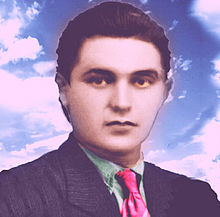
In 1994, under the manifold pseudonym of Luther Blissett, an unknown number of artists from Europe and North America gathered to artistically sabotage the media. The group is a direct relative of Neo-Luddism —its possible historical precedent—, except for the fact that the Luther Blissett project attacks from the field of art. It was our introduction to Artivism.
As we have seen to pass through art/propaganda is not a new tactic. Is embodied into the codes of art, its own semantic game, from Caravaggio to Marinetti, to Brecht, to The Beat Generation and fluxus… Luther was very successful to my generation because we reached the understanding that if you were steady too long you will be crushed by reality, and so you had to stay in the flow of constant change. Again, this could be archived keeping your eyes on the mutations and adapting or on the center and making it fluid. Luther Blisset acted on the subject, by multiplication, in a wonderful anarchistic way that broke symmetry to the “problem” for many of us. Luther had no genre, anyone could be Luther, had no program, anyone could use the name to sign an action, was multiple (100 Luthers could create a TAZ in a bus) and offered protection and inspiration.
Is the opposite of embodiment: disembodiment; multiple identities, collectivization of the signature of an art project, disruption. All and more became for us Luther Blissett.
- Since 1945, in Italy, conforming to the Gramscian strategy of cultural hegemony ( see: Antonio Gramsci, died in 1937), the Partito Comunista placed the right men in such “right places” as cinema, academic circles and publishing houses. These people loosely followed the policy of the party ’til 1968, when some of them backed the new class struggle as engagés intellectuals.
- After 1968 there was a wave of repression and bombs. This becomes in 1977, with mottoes taken from Dada and futurism or from Mao, an open warfare to the western form of capitalism. This new flow/movement that got tampered with heroin, violence of terrorism and special laws ended this flow in reflux…
- Other currents that “experts” deem as “forerunners” of the Luther Blissett project are Neoism and “post-Situationism“, but the media use to give distorted accounts of them: they often call “Neoism” the output of Stewart Home and Karen Eliot before and after the Art Strike 1990-93. As to “post-Situationism”, such a term dadaistically means nothing and is just a tracer for journalistic idiocy.
- RADIO and in particular free radio was the generational seed that exploded in the self communication tactics of 1970es (and was normalized in the ’80 es by Berlusconi) so is no surprise that Luther Blissett looked to exist to a play with broadcasts as mixed between Radio communication, GSM phone and streaming media on internet. We started streaming media because of Luther.
- “Radio Blissett” was broadcasted in Bologna from autumn ’94 to springtime ’96, by the Associazione Psicogeografica di Bologna, whose members are all named “Luther Blissett”. It was a night psychogeographical show on two local left-wing radio stations (Radio K Centrale and Radio Città del Capo).
- Lazio: “Lasciate che i bimbi” http://www.lutherblissett.net/index_en.html
- Books: Luther Blissett Mind Invaders 1995, Q —>Wu-Ming
- http://www.lutherblissett.net/archive/283_en.html
- An indicative interview given by Bifo (that 20 years before was part of the free radio scene with Radio Alice) on the italian public television, for a program called Mediamente, conducted by Massarini, 16 april 1997 http://www.lutherblissett.net/index_en.html
- (about Bifo: https://en.wikipedia.org/wiki/Franco_Berardi)
BIFO: One must not overvalue the importance of Luther Blissett. We could even say that Luther Blissett doesn’t count for anything. All that really counts is the fact that we’re all Luther Blissett, we all have lost any ability of saying where we come from and where we’re going to. This is what Luther Blissett is about. “Psychogeographical drifts”? Naaaah. “Fakes”? Those are merely labels which advertise something different from the actual content of the can. Who gives a damn? After all Luther Blissett is the point of drifting which we all have reached, the moment when each wo/man admits that his/her journey is aimless, because the aim has been abstracted from our journeys. Is this good or evil? I dunno. That’s what Luther Blissett is about.
MASSARINI: Thus it is pointless to wonder if [Luther Blissett] is serious, because he can do anything. I daresay that Luther Blissett might be the mover of such activities as struggles and protests, a sort of Greenpeace of information – but he might also be a completely different thing.
BIFO: Luther Blissett is our contribution to the extinction of civilization.
MASSARINI: [ nervously giggling] Oh dear…
BIFO: …and the extinction of Truth.
MASSARINI: [looking at the camera] Beware!
BIFO: On the other hand, what does ‘truth’ mean as we learn day after day, moment by moment, that our society is based upon such lies as identity, work, communication, family, all those things which are described as necessary though we perfectly know it isn’t like that?
MASSARINI: But why was he born in the cyberspace? Is that a more fertile soil? Is it because communication is easier there than in the traditional media?
BIFO: Well, I think that the Net is the place where the loss of meaning is more apparent and clear. If I communicate through a screen, by a name that can’t be verified, then everything re-emerges, I can lie, multiply, abstract… In our everyday lives we lie all the time, but we’re ashamed of it, and we bump into security checks, someone wants to see our ID card. On the Net, thank God – nay, no thanks to God – we are beyond that block, beyond that necessity.
MASSARINI: So he was born on the Net as a metaphor of the Net itself, and at the same time as a metaphor of the whole society. Is this what you mean?
BIFO: Yes, it is.
Hacker personas, tech landscape and mysticism
- Hacker identity and ethical code are often expresses in a myth, because has always been conceived “after the death of identity and after the death of the bourgeois ethical codes”. Personas or avatars are not simple “identities” but fluid ones. Are identities you decide yourself upon.
- The reality: Hackers vs Sysops, Developers against maintainers… creators and visionaries…
- Maintenance of largely digital infrastructure (this is not the hacker paradise but is hacker culture to the best) recalls one of the character of Brazil: mr. Tattle (Brazil, Terry Gilliam,1985) the maintenance guy is the leader of the resistance. He can move freely in the sewers of the digital control infrastructure. You find another reference to this archetype in Fight Club (1999)
- Agency on technology in the real world, outside the narration of the corporate world (IBM).
- We dragged technology in our own world and invented new uses for it, liminal, fluid, complex, border-less. This is why Linux is a mess!
- The reality: Hackers vs Sysops, Developers against maintainers… creators and visionaries…
- Places and events to be fluid: a small list
- Subcultures melting pots: BBS/CSOA aka why you need a place in the meat-space and a cyber hangout is not enough
- Demo Scene/cracking
- BBS 1986 Fidonet/Mc-Link/Agora’
- 1990 first email fbonelli@mat.uniroma.it
- MAD, comics and other comics
- FLOSS
- 1994 the Italian Crackdown
- 1995 PGP
- DVD Protection scheme DeCSS
- Poetry hacklab
- Hackmeeting 1999 (Milan), 2000 (Bologna)
- 2000 linux day
- Private property vs abundance, Commonerism
- Sampling in music, no copywright: negativeland vs U2 is from 1991 but the problem existed since the development of Hip Hop and sampling
- GPL software as a mean to produce cannot be closed property of an entity (marxist interpretation on the street of GLP). The first version of GPL is from 1989, EFF is born as a reaction to the hacker crackdown in 1990
- Copyright of Software and piracy how hacktivism was born out of knowledge for all… Why for example copyright legislation in italy allows companies to own rights of intellectual property including some inalienable rights of the programmer?
- The philologist speaks: Who said it? Where? Access to source is a human(ist) right!
- The poet speak: tech words are barbaric but permeate our reality. Is the task of the poet to find way to compose new meaning of beauty and wonder with those.
- Hacking as a borderline political action was held in a very different space in EU from the states:
- SPY-Cold War Karl Koch nickname (Hagbard-Celine) pointers to ’60 American subculture that fed for example the “Illuminati trilogy”, a subculture that was discovered through BBS and in early days of Internet (usenet mailing lists). The Anarchist cookbook
- reinventing strikes: DDOS attacks
- Because Identity effects the Teleological question in Philosophy, that is the point of departure to many spiritual traditions, is not a surprise to see that Luther carries as well spiritual consequences, and hints to some interesting and fuzzy spiritual paths. They come and go in stories that are cross connecting subcultures, from Comics to Songs to urban mythologies around the world.
- The Avantbard: Luther meets with the jargon of Hakim Bey and seeds are dropped in bombs
- I cinque sermoni dell’avanbardo http://www.lutherblissett.net/archive/107_it.html
- Avanguardia e Graal sono la stessa cosa? http://www.ecn.org/fantadc/lbp/mind2-2.htm
- The Avantbard: Luther meets with the jargon of Hakim Bey and seeds are dropped in bombs
- The Avant-Bard toolkit:
- situationism, poetic terrorism, fakumentary, cospiracy, plagiarism, meme, myth making, detournement… sounds familiar? What is behind fake news? Is fake news and an history that can be rewritten every moment (like wikipedia) share a similar root?
- Disembodiement of the Map: the (digital) city within different rythuals
- Were do we live: the idea of city as a fluid entity (International Situazioniste, Derive, Situation based art, artivism, poetic terrorism, TAZ)
- the city as a service? Smartcity
- Commonerism: revendication BY DESIGN of common spaces: New Babylon, the net, neo-tokio (Akira).
- NB All this was clear much before the “smart city” hype pushed by big data farm. But again “detournement” of any avantguarde is the favourite weapon of capitalism. I discovered the Internationale Situationiste only at the end of the ’90es exactly because of the tabula rasa made by school and drugs with the previous generation.
- The Saloon, the bunker, the bar, the pub, the CSOA, the importance of the reconfigurable space
- 1990’es Social centes (or squats) as nodes in a network of subcultures.
- The hacklab becomes an a element of this network from the end of 1990’es on. But there is a point were all this started…
- 1990 la Pantera: occupation of universities
- Fax as a coordination element, a sort of digital tazebao
- the BBS was a better one and the geek had something finally to say in the realm of the university political action. We became interesting for “the movement”
- Social Centers had a clear No Heroin policy. Cannabis possibly self grown was the drug of use of the movements (and the rest is just for parties). Posse.
- Hacklabs are included in Squats the term Hacklab is 1999 (hackmeeting Milano), the practice is 1998 (freaknet CSOA auro CT)
- FLOSS! Linux Day!!! (1999/2000)
- Bricolabs (2009 )
- The map that is in the shamanic navigation of the liminal space: psycogeography. Stalker
GRAN FINALE
The Semeiotical Counter Revolution
The cloud as disembodiment of the network; so in its appropriation of the digital space, capitalism wants to substitute the rhizome, brute forces the net and operates a substitution in the imaginary to hold on its hegemony, shaping the original jungle rhizome into a soybean mono-culture for mysterious big data and crawling algorithms disguised as intelligence… Welcome to WeChat/Facebook and other platform economies.
Counter revolution tactics goes over introducing the term “data” as a quantitative catchall notion instead of “knowledge”, a social construct depending on qualitative evaluations and ever changing situations. To have and not to give.
- Rhizome
- Deleuze and Guattari: use the terms “rhizome” and “rhizomatic” to describe theory and research that allows for multiple, non-hierarchical entry and exit points in data (what is knowledge?) representation and interpretation. With what we know about plants and the way to design with them now we can expand Guattari’s terminology in many fruitful ways to describe the culture we envision. That is the hook for a discourse over soil and roots and mycelian networks and self balancing ecosystems…
- Why to bother with the abstruse ideas of the french philosopher if we had the key to complexity? Chaos: simple processes describe incredibly complex structures: invariant of scale, self similarity, complexity of which you can hold/code/describe a seed process and discover characteristics through simulation. For me/us Chaos is The Key of Salomon.
- Skaters, surfers, urban gardeners: public space re-appropriation, liberation of commons, self organizing communities, anti consumerist resilience
- Chaos Magic. And here all is an (open) secret!!
- Disembodiment of property
- This {car; house; pen; child} is mine. From looking to a attribute of an object to refocusing to the necessary procedure of validation of a statement. Were is property written and who knows the language the message is written into. How can you re-design property?
- Opening a worm can: money is obsolete, then what?
- Satoshi Nakamoto (2009)
- p2p economy, neo coop, commonerism…
- Agency, privacy and algorithmic governance
- (the term Agency has a substantially different accepted meaning in philosophy and in sociological, beware which one you use)
- Egemony (Gramsci, Pasolini, Luther Blissett)
- Myth making as a way to reach cultural egemony in controlled media monopolies subject to mass manipulation (you don’t need cospiracie theory to see this, is enough to see the size in $ of the PR industry, including advertising and public relations)
- shall we still be fighting for egemony in 2021 or is just soo XX century?
- Rushkoff Childrens of Chaos (1996)
- DAO economics
PS All yur Base Are Belong to US https://www.youtube.com/watch?v=jQE66WA2s-A

About the autor: Federico Bonelli, is a philosopher and an artist, acting coordinator of Trasformatorio Foundation; more information about him can be found here or on this website. You can reach him vie email fredd(at)trasformatorio.net or @freddbomba on telegram.
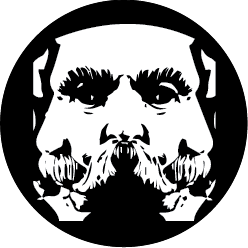

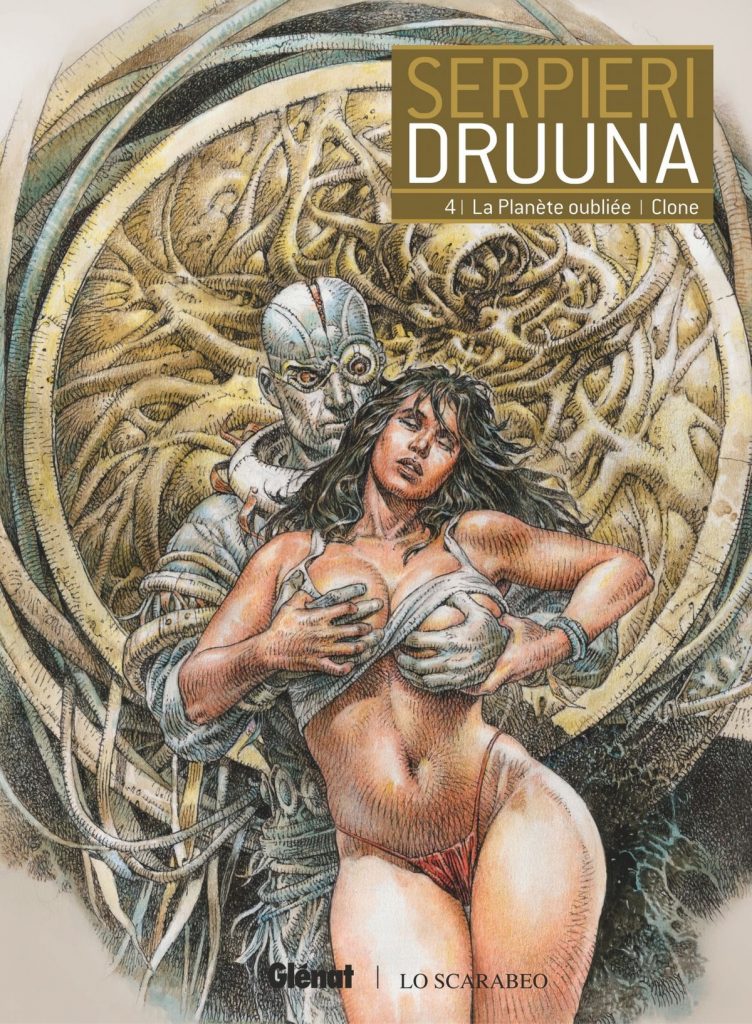


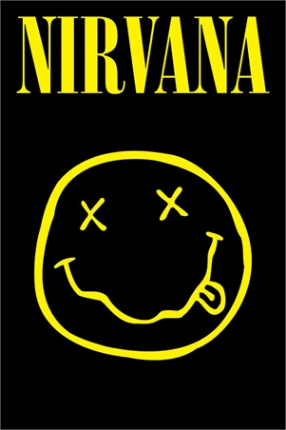
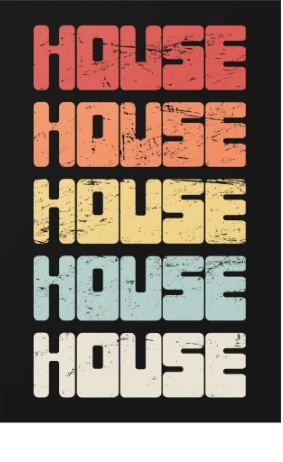

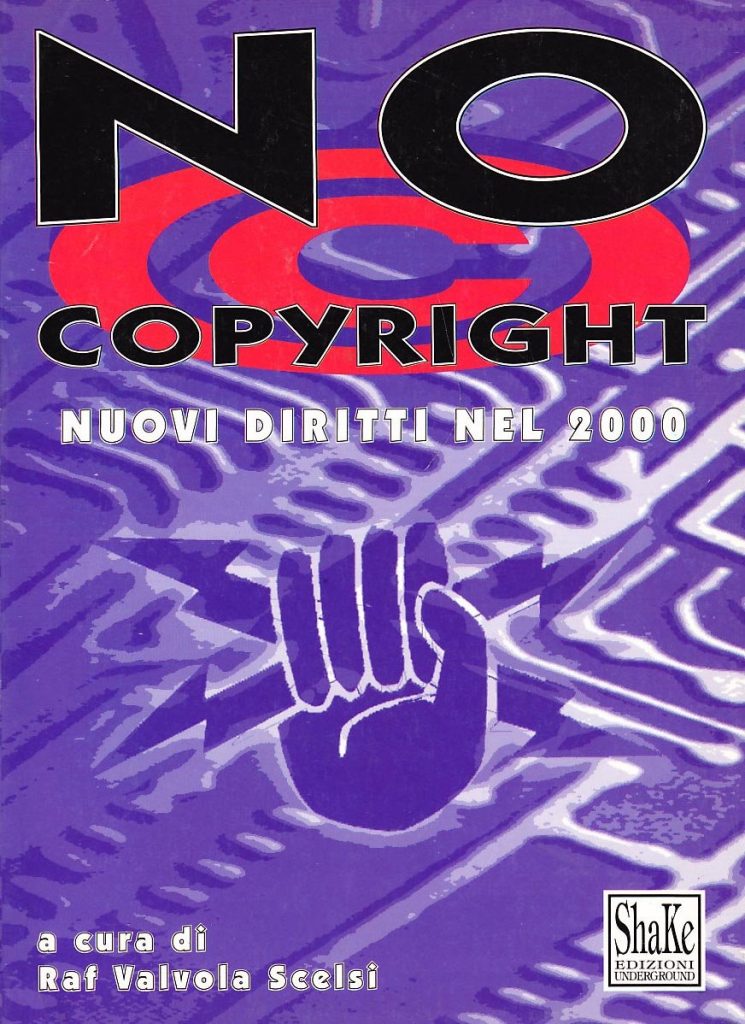


One thought on “A Fuzzy Journey II – 矇眬之旅”